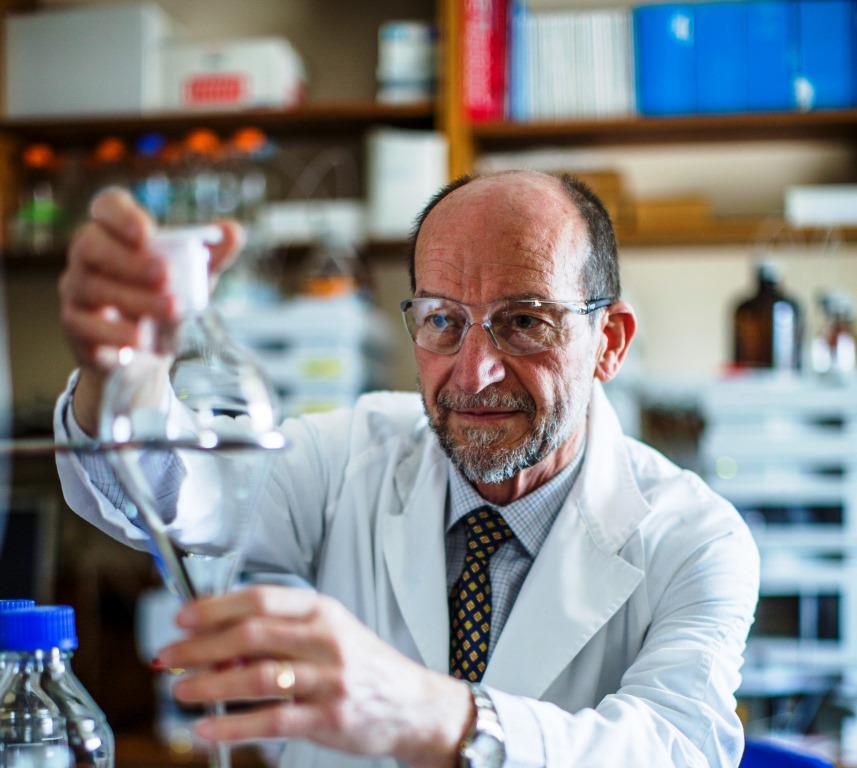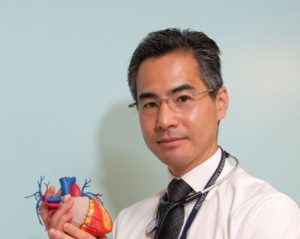

Addressing heart problems in people with mental illnesses, faster identification of heart attacks and easing internal pain without opiate drugs are amongst the successful Flinders University initiatives awarded 2017 National Health and Medical Research Council funding.
Flinders secured $3,817,434 for five Project Grants, and a $470,144 Career Development Fellowship.
They are in addition to the recently announced 2017 Development Grant to Professor John Arkwright for research into obstructive sleep apnoea, and an Early Career Fellowship to Dr Shailesh Bihari for his research into fluid resuscitation, better known as an intravenous drip.
Deputy Vice-Chancellor (Research) Professor Robert Saint says the funding supports Flinders’ leading role in making a difference to people’s lives through research and innovation.
“Flinders University has a long and proud tradition of solving real world problems and improving health outcomes for all Australians, and these latest NHMRC funded projects further reinforce our commitment to research excellence that delivers health and wellbeing solutions here and around the world,” Professor Saint says.

The successful projects are:
$960,320 for Professor Malcolm Battersby and team, for a project titled “Improving cardiovascular health and quality of life in people with severe mental illness: a randomised trial of a ‘partners in health’ intervention”. People with severe mental illnesses have a higher prevalence of heart disease, which researchers hope to address through a “partners in health” support approach. Other chief investigators from Flinders University are Professor Michael Kidd, Professor Julio Licinio (also SAHMRI theme leader), Professor Sharon Lawn, Professor Julie Ratcliffe and Dr Stephen Quinn, as well as Professor Philip Aylward (Flinders Medical Centre) and Professor Amanda Baker (University of Newcastle).
$1,095,319 to Professor Derek Chew and team for a project titled “Improving Rapid Decision-Making in the Face of Uncertainty: A randomised trial of a 1-hour troponin protocol in suspected acute coronary syndromes”. Team includes Flinders University’s Dr Stephen Quinn, Associate Professor Thomas Briffa (University of Western Australia), Professor Louise Cullen (Royal Brisbane and Women’s Hospital, Queensland Health) and Professor Jonathan Karnon (University of Adelaide)
$558,447 to Professor John Miners and Professor Ross McKinnon for a project titled “The molecular basis of cytochrome P450 ligand binding: Towards predicting enzyme substrate selectivity and drug-drug interaction potential.” The researchers will use computational and experimental techniques to better understand how the body metabolises, or breaks down, drugs. For patients on multiple medications such as those being treated for cancer, this knowledge could help to avoid harmful effects from interactions between co-administered drugs.
$565,966 to Professor Justine Smith for a project titled “Regulation of ICAM-1 Expression in Human Retinal Endothelial Cells”. Professor Smith is an eye specialist who treats uveitis – sight threatening inflammation inside the eye. Designer drugs that target the proteins that cause the inflammation are a revolutionary 21st Century treatment, but since the proteins are also needed for the normal immune system, people who take these drugs are at risk for serious infections. This research will develop a different drug approach that works by only partially blocking the proteins, so the immune response can function normally and there is no risk of infection.
$637,382 to Professor Nicholas Spencer and Professor Simon Brookes for a project titled “A novel technique for prolonged silencing of visceral pain without opiates”. This project uses a harmless virus to carry an RNA molecule that silences a particular type of ion channel essential for pain signals to reach the brain. The major novelty of this technique is that it offers selective silencing of pain signals only at the site of injection, for long periods of time. This means that prolonged chronic pain in mammals can be targeted at the source of the pain, by shutting down the activity of only the sensory nerves that carry the pain signals from the source of the injury. The patient therefore would not rely on regular consumption of non-specific and often highly addictive pain killers, like opiates, that affect so many organ systems.
A $470,144 Career Development Fellowship was awarded to Associate Professor Stuart Brierley for a project titled “Identifying the underlying causes of chronic visceral pain and discovering novel therapeutic treatments.” By finding the mechanisms that are changed during chronic pain, researchers hope to find treatments for Irritable Bowel Syndrome, Inflammatory Bowel Disease and over-active bladder, which affects millions of people across the globe.
Other Flinders University chief investigators on Professor Arkwright’s obstructive sleep apnoea project are Associate Professor Taher Omari, Associate Professor Peter Catcheside, Professor Andrew Carney, Professor Karen Reynolds and Professor Douglas McEvoy, along with Professor Peter Eastwood (University of WA).
The Flinders researchers involved in other NHMRC projects administered by other universities include Professor Chew, Professor McEvoy, Associate Professor Catcheside, Professor Paul Ward, Dr Tamara Mackean, Dr Andrew Vakulin and Associate Professor Michael Sorich.

